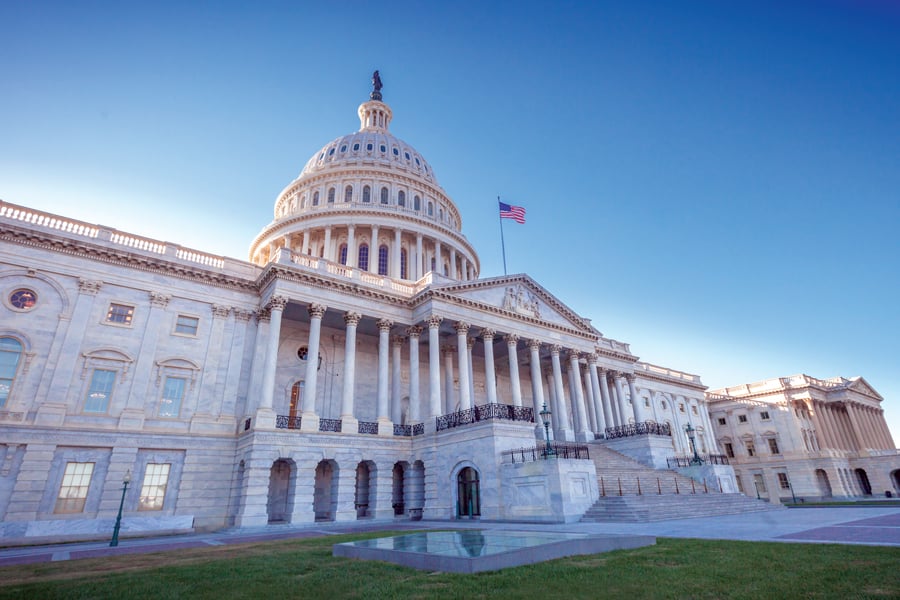

As the list of advisory firms collecting forgivable stimulus loans grows, the financial services industry is starting to take sides on the morality of a fee-based business getting money that might better serve restaurants and shops that were completely shut down due to the COVID-19 pandemic.
“Certain banks will look at this and say if a business took a [Paycheck Protection Plan] loan, they’re in distress and we can’t give them credit,” Rick Dennen, president and chief executive of Oak Street Funding, said during a webinar this week.
Dennen qualified his comments on registered investment advisers taking the loans by emphasizing the uncertainty facing the global economy in early April, when the loan application process began.
“When COVID started shutting down the country, there was uncertainty,” he said. “A lot of people were able to effectively conclude they don’t have a problem taking the money.”
Dennen said he doesn’t “hold it against” RIAs that took the forgivable loans, and added that, “a year or six months from now if those loans are forgiven the values [of those advisory firms] will be enhanced.”
On the same webinar, Dave Barton, vice chairman of Mercer Advisors, also said he “doesn’t sit in judgment of anyone that has taken a PPP loan,” but he said the loans could come back to haunt otherwise healthy businesses that didn’t really need the money.
“With regard to the consideration of having to need that capital to survive, that’s quite a statement you’re making,” he said. “You’re essentially telling your own clients you’re in distress and need to take a loan to keep the doors open. And if you take it, you gotta disclose it.”
But beyond the potential snags or benefits to an RIA’s balance sheet and valuation, some in the industry are challenging the integrity of fee-based advisory firms tapping into the limited pool of forgivable loan funds when their business model is designed to continue collecting fees.
Daniel Wiener, chairman and co-founder of Adviser Investments, a $5.5 billion RIA, has jumped on a soapbox to shame some of the multibillion-dollar RIAs for taking what he describes as taxpayer money.
“If the business model is so broken they feel they need a government backstop and don’t have other sources of capital such as bank lines of credit already established, these are not viable businesses and shouldn't be propped up in the first place,” he said.
Wiener specifically called out large and seemingly successful RIAs that have taken PPP loans, including $1.3 billion Ritholtz Wealth Management, $4.9 billion RegentAtlantic and $12 billion Carson Group.
“RegentAtlantic, like many other small businesses, faces challenges as a result of the coronavirus pandemic,” a spokesperson said in an email. “In an abundance of caution and in the absence of clarity on the overall economic impact of the pandemic, RegentAtlantic applied for and received a loan under the Treasury Department's Payroll Protection Program.”
Carson Group did not immediately respond to a request for comment for this story, but Ritholtz CEO Josh Brown said the media is misrepresenting his firm’s loan.
“We are paying it down like any other loan,” he said. “There's no forgiveness or help from anyone. I did this to take the uncertainty off of my employees and put it on my own shoulders. The next person who slanders me and insinuates that I was bailed out is going to hear from my attorneys.”
In a blog post this week, Brown wrote in part that he “assumed that a business owner going into debt in order to keep their operations running smoothly and their people employed would be seen as heroic.”
Brown’s blog post went on to underscore the challenges facing business owners during the global pandemic.
“I can’t imagine there is a single business owner in America right now who wouldn’t rather have the economy revived and pay their loans off rather than be forced to ask for forgiveness. People who start businesses have a dream. They don’t want free shit from the government. They risk everything to bring that dream to life. And then there are people who spit on them at their most vulnerable moments. It’s disgusting,” he concluded.
Meanwhile, Wiener believes the intent of the hastily-constructed PPP program was to help small businesses like butcher shops and hair salons that suffered from lost revenues during the shutdown.
“There’s going to be a lot of false justification given for taking these loans, but clients should read through it and understand that one of two things happened,” he said. “Either the firm is in a weaker financial situation than they thought, or the firm has some issues around the morality of taking government handouts. Take your pick.”

Rajesh Markan earlier this year pleaded guilty to one count of criminal fraud related to his sale of fake investments to 10 clients totaling $2.9 million.

From building trust to steering through emotions and responding to client challenges, new advisors need human skills to shape the future of the advice industry.

"The outcome is correct, but it's disappointing that FINRA had ample opportunity to investigate the merits of clients' allegations in these claims, including the testimony in the three investor arbitrations with hearings," Jeff Erez, a plaintiff's attorney representing a large portion of the Stifel clients, said.

Chair also praised the passage of stablecoin legislation this week.

Maridea Wealth Management's deal in Chicago, Illinois is its first after securing a strategic investment in April.
Orion's Tom Wilson on delivering coordinated, high-touch service in a world where returns alone no longer set you apart.
Barely a decade old, registered index-linked annuities have quickly surged in popularity, thanks to their unique blend of protection and growth potential—an appealing option for investors looking to chart a steadier course through today's choppy market waters, says Myles Lambert, Brighthouse Financial.
